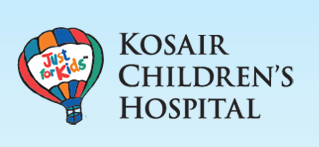Stress Hydrocortisone In Pediatric Septic Shock
| Status: | Recruiting |
|---|---|
| Conditions: | Hospital, Hospital |
| Therapuetic Areas: | Other |
| Healthy: | No |
| Age Range: | Any - 17 |
| Updated: | 3/15/2019 |
| Start Date: | March 11, 2019 |
| End Date: | June 10, 2023 |
| Contact: | Jerry J Zimmerman, MD, PhD |
| Email: | jerry.zimmerman@seattlechildrens.org |
| Phone: | 206-987-3862 |
SHIPSS is a multi-institutional, prospective, controlled, randomized, double-blinded
interventional trial that will examine the potential benefits and risks of adjunctive
hydrocortisone prescribed for children with fluid and vasoactive-inotropic refractory septic
shock.
It is hypothesized that adjunctive hydrocortisone will significantly reduce the proportion of
children with poor outcomes, defined as death or severely impaired health-related quality of
life (HRQL), as assessed at 28 days following study enrollment (randomization).
interventional trial that will examine the potential benefits and risks of adjunctive
hydrocortisone prescribed for children with fluid and vasoactive-inotropic refractory septic
shock.
It is hypothesized that adjunctive hydrocortisone will significantly reduce the proportion of
children with poor outcomes, defined as death or severely impaired health-related quality of
life (HRQL), as assessed at 28 days following study enrollment (randomization).
Sepsis represents the most common cause of childhood mortality worldwide. In the United
States alone, 200 cases of pediatric sepsis are diagnosed each day, with an associated
hospital mortality rate of 5-10% and health care expenditures now approaching $5 billion
annually. Moreover, nearly one third of children admitted to pediatric intensive care units
(PICUs) for septic shock have not regained their baseline health-related quality of life one
year following the sepsis event.
During early resuscitation of the child with septic shock, in addition to antibiotics, volume
replacement, and vasoactive-inotropic support, the most recent pediatric treatment guidelines
advise the practitioner to consider adjunctive hydrocortisone therapy if the patient "is at
risk of absolute adrenal insufficiency or adrenal pituitary axis failure". However, the
potential benefits and risks of this recommendation have not been rigorously examined. On the
one hand, corticosteroids are inexpensive and have been frequently demonstrated to improve
hemodynamic status in children and adults with sepsis. Conversely, this drug class is known
to alter transcription of approximately 30% of the human genome. Notably, corticosteroids
down regulate most aspects of the immune response, but particularly adaptive immunity.
Moreover, recent data suggests that children with particular gene expression profiles in
sepsis have increased likelihood of mortality when treated with corticosteroids.
SHIPSS (Stress Hydrocortisone In Pediatric Septic Shock) is a prospective, randomized,
double-blinded, placebo-controlled trial examining the potential benefits and risks of
adjunctive hydrocortisone prescribed to critically ill children with fluid and
vasoactive-inotropic refractory septic shock. Up to 1,032 children will be enrolled,
randomized, and evaluated at baseline, PICU discharge, and 28 and 90 days following study
enrollment.
The primary hypothesis is that hydrocortisone, compared to placebo, will decrease the
proportion of subjects with poor outcomes, defined as death or severely impaired (≥25%
decrease from baseline) HRQL. The investigators will also follow subjects to detect side
effects of the treatment. Finally, the investigators will test the hypothesis that
biomarker-based prognostic and predictive enrichment strategies can improve our ability to
identify which children with septic shock are more likely to benefit from adjunctive
hydrocortisone, and which may be harmed. This trial will have a significant impact on public
health by providing the heretofore missing evidence to inform guidelines regarding therapy
for septic shock in children.
The SHIPSS trial will enroll patients from Canada and the US. Health Canada approval is not
required as hydrocortisone is approved for use in septic shock in children, and this trial
meets the criteria of a Phase IV study. In the United States, this trial is considered a
Phase III trial as hydrocortisone is approved for use in septic shock but not specifically
approved for use in pediatric septic shock.
States alone, 200 cases of pediatric sepsis are diagnosed each day, with an associated
hospital mortality rate of 5-10% and health care expenditures now approaching $5 billion
annually. Moreover, nearly one third of children admitted to pediatric intensive care units
(PICUs) for septic shock have not regained their baseline health-related quality of life one
year following the sepsis event.
During early resuscitation of the child with septic shock, in addition to antibiotics, volume
replacement, and vasoactive-inotropic support, the most recent pediatric treatment guidelines
advise the practitioner to consider adjunctive hydrocortisone therapy if the patient "is at
risk of absolute adrenal insufficiency or adrenal pituitary axis failure". However, the
potential benefits and risks of this recommendation have not been rigorously examined. On the
one hand, corticosteroids are inexpensive and have been frequently demonstrated to improve
hemodynamic status in children and adults with sepsis. Conversely, this drug class is known
to alter transcription of approximately 30% of the human genome. Notably, corticosteroids
down regulate most aspects of the immune response, but particularly adaptive immunity.
Moreover, recent data suggests that children with particular gene expression profiles in
sepsis have increased likelihood of mortality when treated with corticosteroids.
SHIPSS (Stress Hydrocortisone In Pediatric Septic Shock) is a prospective, randomized,
double-blinded, placebo-controlled trial examining the potential benefits and risks of
adjunctive hydrocortisone prescribed to critically ill children with fluid and
vasoactive-inotropic refractory septic shock. Up to 1,032 children will be enrolled,
randomized, and evaluated at baseline, PICU discharge, and 28 and 90 days following study
enrollment.
The primary hypothesis is that hydrocortisone, compared to placebo, will decrease the
proportion of subjects with poor outcomes, defined as death or severely impaired (≥25%
decrease from baseline) HRQL. The investigators will also follow subjects to detect side
effects of the treatment. Finally, the investigators will test the hypothesis that
biomarker-based prognostic and predictive enrichment strategies can improve our ability to
identify which children with septic shock are more likely to benefit from adjunctive
hydrocortisone, and which may be harmed. This trial will have a significant impact on public
health by providing the heretofore missing evidence to inform guidelines regarding therapy
for septic shock in children.
The SHIPSS trial will enroll patients from Canada and the US. Health Canada approval is not
required as hydrocortisone is approved for use in septic shock in children, and this trial
meets the criteria of a Phase IV study. In the United States, this trial is considered a
Phase III trial as hydrocortisone is approved for use in septic shock but not specifically
approved for use in pediatric septic shock.
Inclusion Criteria:
A child receiving treatment in a pediatric intensive care unit is eligible for recruitment
into SHIPSS if she/he meets all of the following inclusion criteria:
1. Age is at least 1 month (with corrected gestational age ≥42 weeks), but less than 17.5
years.
2. A focus of infection has been documented or there is a strong suspicion of infection
upon admission to the PICU.
3. Surveillance cultures (e.g. blood, urine, cerebral spinal fluid, wound) and/or other
microbial diagnostic tests have been obtained.
4. One or more antimicrobials have been prescribed.
5. e. Core temperature >38.5 C or <36.0 C or leukocytosis or leukopenia (as defined by
the local laboratory) or a left-shifted leukocyte differential (>10% immature
granulocyte forms) or a neutrophil count of <500 documented at least once within the
24 hours preceding screening
6. f. Treatment with a continuous infusion of vasoactive-inotropic agent(s) to maintain
mean or systolic arterial blood pressure above the age-appropriate target set by the
treating clinician
7. Administration of two or more vasoactive-inotropic agents at any dose or epinephrine
or norepinephrine infusion(s) alone at greater than >0.10 mcg/kg/min for >1 hour.
Exclusion Criteria:
A child receiving treatment in a pediatric intensive care unit for sepsis is ineligible for
enrollment into SHIPSS if she/he meets any of the following exclusion criteria:
1. All inclusion criteria have been present for > 12 hours
2. Attending physician expects to prescribe systemic corticosteroids for an indication
other than septic shock
3. Patient has received any doses of systemic corticosteroids during treatment for sepsis
4. Enrolled concurrently in a competing interventional clinical trial (formal assessment
to be conducted by SHIPSS Core Committee for each potential competing trial).
5. Etomidate or ketoconazole treatment within past 48 hours
6. Treatment for systemic fungal infection at time of screening
7. Documented cerebral malaria at time of screening
8. Documented strongyloides at time of screening
9. Known or suspected hypothalamic, pituitary or adrenal disease (including patient has
received acute or chronic corticosteroid administration and the physician intends to
provide corticosteroid for suspected adrenal suppression)
10. Attending physician, PICU care team, or legally recognized guardians not committed to
full treatment and resuscitation
11. Patient documented to be pregnant
12. Previous enrollment in the SHIPSS study
13. Primary disease/injury is a thermal burn
14. (U.S. sites only) Patient in the custody of US protective services.
We found this trial at
22
sites
Click here to add this to my saved trials
Click here to add this to my saved trials
3333 Burnet Avenue # Mlc3008
Cincinnati, Ohio 45229
Cincinnati, Ohio 45229
1-513-636-4200

Cincinnati Children's Hospital Medical Center Patients and families from across the region and around the...
Click here to add this to my saved trials
Childrens Hospital Los Angeles Children's Hospital Los Angeles is a 501(c)(3) nonprofit hospital for pediatric...
Click here to add this to my saved trials
Kosair Children's Hospital For more than a century, Kosair Children's Hospital and its predecessor hospitals...
Click here to add this to my saved trials
Children's Hospital of Orange County For more than 45 years, CHOC Children’s has been steadfastly...
Click here to add this to my saved trials
Children's Healthcare of Atlanta Whether treating a toddler in an emergency or supporting a teen...
Click here to add this to my saved trials
University of Maryland Medical Center Founded in 1823 as the Baltimore Infirmary, the University of...
Click here to add this to my saved trials
Click here to add this to my saved trials
225 E Chicago Ave
Chicago, Illinois 60611
Chicago, Illinois 60611
(312) 227-4000

Ann & Robert H. Lurie Children's Hospital of Chicago Ann & Robert H. Lurie Children
Click here to add this to my saved trials
Click here to add this to my saved trials
Click here to add this to my saved trials
Dartmouth Hitchcock Medical Center Dartmouth-Hitchcock is a national leader in patient-centered health care and building...
Click here to add this to my saved trials
Saint Barnabas Medical Center As a Barnabas Health facility, Saint Barnabas Medical Center is committed...
Click here to add this to my saved trials
Click here to add this to my saved trials
Click here to add this to my saved trials
Click here to add this to my saved trials
Click here to add this to my saved trials
Click here to add this to my saved trials
Seattle Children's Hospital Seattle Children’s Hospital specializes in meeting the unique physical, emotional and developmental...
Click here to add this to my saved trials
Click here to add this to my saved trials
Click here to add this to my saved trials







